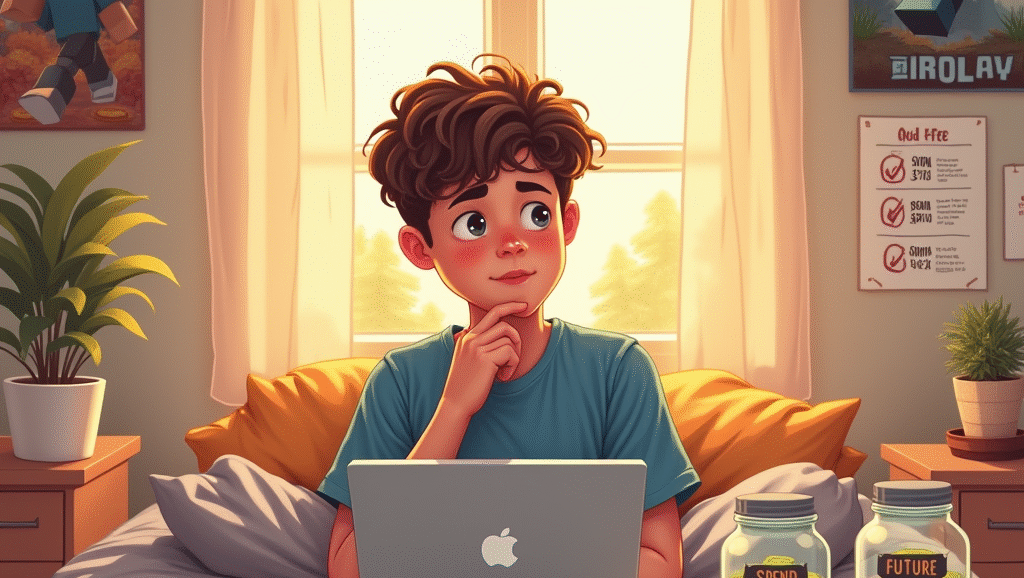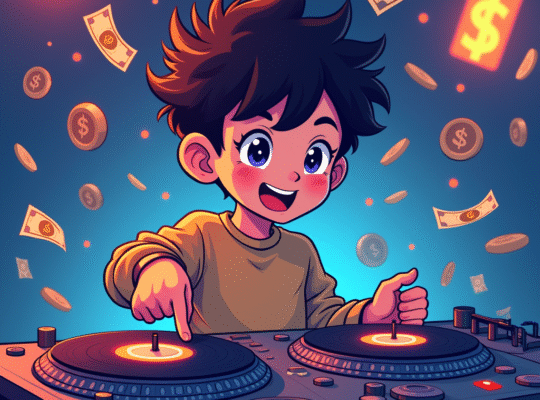You ever look inside your wallet or open your allowance app and think, “Wait… I had money yesterday. Where did it all go?”
Welcome to the invisible level of life most people ignore until it’s too late. It’s not flashy like a boss battle or loud like a new high score, but knowing how to budget your money? That’s the real cheat code.
Picture this: You just got $50 from chores, a birthday card, or that art you sold online. Feels good, right? But now you’re standing in front of a snack aisle, a new hoodie ad just popped up on your phone, and your friend is texting about that concert in two weeks. You can’t do it all. That’s not punishment—that’s real life. And a budget is your game plan. Without one, it’s way too easy to fall into common traps—like spending everything right away or forgetting that you promised to chip in for that birthday gift next week.
Think of budgeting is like setting up your base in a survival game. You don’t start by decorating with neon lights or buying a lava fountain. You build walls, store food, and craft tools. In real life, that means setting aside money for what you know is coming (like school lunches, gifts, or your monthly subscription), before you go spending on a bubble tea run or another app skin. One big mistake? Thinking small expenses don’t matter. But those $5 snacks and $2 game passes add up fast. It’s like taking tiny bites from your savings until there’s nothing left.
And no, it doesn’t have to be complicated. You don’t need a spreadsheet the size of your math textbook. Grab a notebook, use your Notes app, or try the envelope method—whatever fits how your brain works. Start by figuring out what you make, list the stuff you actually need to pay for, and divide the rest into what you want and what you want to save for. Another slip-up? Forgetting to track. If you don’t write it down, you’ll swear your money disappeared—when really, it just wandered off, $1 at a time.
Here’s the wild part: money doesn’t care how old you are. Whether you’re 12 or 18, being the kind of person who knows where their money is going? That’s rare. That’s freedom.
So next time you get money, pause. Don’t just spend it. Plan. Because when you control your money, instead of letting it control you, you’re not just playing the game—you’re actually winning it.



